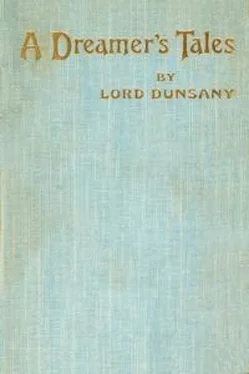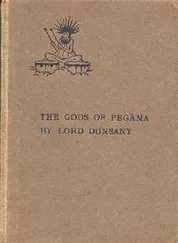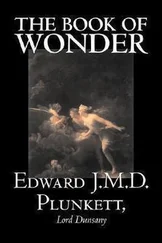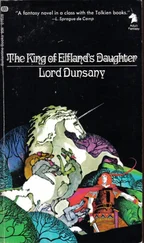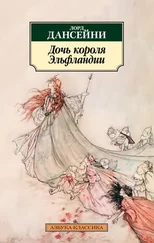I felt that it would be a terrible place to go mad in, one would hear voices.
At last I went to a poet whom I knew, and woke him from huge dreams, and put before him the whole case of the field. He had not been out of London all that year, and he promised to come with me and look at the field, and tell me what was going to happen there. It was late in July when we went. The pavement, the air, the houses and the dirt had been all baked dry by the summer, the weary traffic dragged on, and on, and on, and Sleep spreading her wings soared up and floated from London and went to walk beautifully in rural places.
When the poet saw the field he was delighted, the flowers were out in masses all along the stream, he went down to the little wood rejoicing. By the side of the stream he stood and seemed very sad. Once or twice he looked up and down it mournfully, then he bent and looked at the king–cups, first one and then another, very closely, and shaking his head.
For a long while he stood in silence, and all my old uneasiness returned, and my bodings for the future.
And then I said, “What manner of field is it?”
And he shook his head sorrowfully.
“It is a battlefield,” he said.
In the town by the sea it was the day of the poll, and the poet regarded it sadly when he woke and saw the light of it coming in at his window between two small curtains of gauze. And the day of the poll was beautifully bright; stray bird–songs came to the poet at the window; the air was crisp and wintry, but it was the blaze of sunlight that had deceived the birds. He heard the sound of the sea that the moon led up the shore, dragging the months away over the pebbles and shingles and piling them up with the years where the worn–out centuries lay; he saw the majestic downs stand facing mightily southwards; he saw the smoke of the town float up to their heavenly faces—column after column rose calmly into the morning as house by house was waked by peering shafts of the sunlight and lit its fires for the day; column by column went up toward the serene downs’ faces, and failed before they came there and hung all white over houses; and every one in the town was raving mad.
It was a strange thing that the poet did, for he hired the largest motor in the town and covered it with all the flags he could find, and set out to save an intelligence. And he presently found a man whose face was hot, who shouted that the time was not far distant when a candidate, whom he named, would be returned at the head of the poll by a thumping majority. And by him the poet stopped and offered him a seat in the motor that was covered with flags. When the man saw the flags that were on the motor, and that it was the largest in the town, he got in. He said that his vote should be given for that fiscal system that had made us what we are, in order that the poor man’s food should not be taxed to make the rich man richer. Or else it was that he would give his vote for that system of tariff reform which should unite us closer to our colonies with ties that should long endure, and give employment to all. But it was not to the polling–booth that that motor went, it passed it and left the town and came by a small white winding road to the very top of the downs. There the poet dismissed the car and led that wondering voter on to the grass and seated himself on a rug. And for long the voter talked of those imperial traditions that our forefathers had made for us and which he should uphold with his vote, or else it was of a people oppressed by a feudal system that was out of date and effete, and that should be ended or mended. But the poet pointed out to him small, distant, wandering ships on the sunlit strip of sea, and the birds far down below them, and the houses below the birds, with the little columns of smoke that could not find the downs.
And at first the voter cried for his polling–booth like a child; but after a while he grew calmer, save when faint bursts of cheering came twittering up to the downs, when the voter would cry out bitterly against the misgovernment of the Radical party, or else it was—I forget what the poet told me—he extolled its splendid record.
“See,” said the poet, “these ancient beautiful things, the downs and the old–time houses and the morning, and the grey sea in the sunlight going mumbling round the world. And this is the place they have chosen to go mad in!”
And standing there with all broad England behind him, rolling northward, down after down, and before him the glittering sea too far for the sound of the roar of it, there seemed to the voter to grow less important the questions that troubled the town. Yet he was still angry.
“Why did you bring me here?” he said again.
“Because I grew lonely,” said the poet, “when all the town went mad.”
Then he pointed out to the voter some old bent thorns, and showed him the way that a wind had blown for a million years, coming up at dawn from the sea; and he told him of the storms that visit the ships, and their names and whence they come, and the currents they drive afield, and the way that the swallows go. And he spoke of the down where they sat, when the summer came, and the flowers that were not yet, and the different butterflies, and about the bats and the swifts, and the thoughts in the heart of man. He spoke of the aged windmill that stood on the down, and of how to children it seemed a strange old man who was only dead by day. And as he spoke, and as the sea–wind blew on that high and lonely place, there began to slip away from the voter’s mind meaningless phrases that had crowded it long—thumping majority—victory in the fight—terminological inexactitudes—and the smell of paraffin lamps dangling in heated schoolrooms, and quotations taken from ancient speeches because the words were long. They fell away, though slowly, and slowly the voter saw a wider world and the wonder of the sea. And the afternoon wore on, and the winter evening came, and the night fell, and all black grew the sea; and about the time that the stars come blinking out to look upon our littleness, the polling–booth closed in the town.
When they got back the turmoil was on the wane in the streets; night hid the glare of the posters; and the tide, finding the noise abated and being at the flow, told an old tale that he had learned in his youth about the deeps of the sea, the same which he had told to coastwise ships that brought it to Babylon by the way of Euphrates before the doom of Troy.
I blame my friend the poet, however lonely he was, for preventing this man from registering his vote (the duty of every citizen); but perhaps it matters less, as it was a foregone conclusion, because the losing candidate, either through poverty or sheer madness, had neglected to subscribe to a single football club.
“Why do you not dance with us and rejoice with us?” they said to a certain body. And then that body made the confession of its trouble. It said: “I am united with a fierce and violent soul, that is altogether tyrannous and will not let me rest, and he drags me away from the dances of my kin to make me toil at his detestable work; and he will not let me do the little things, that would give pleasure to the folk I love, but only cares to please posterity when he has done with me and left me to the worms; and all the while he makes absurd demands of affection from those that are near to me, and is too proud even to notice any less than he demands, so that those that should be kind to me all hate me.” And the unhappy body burst into tears.
And they said: “No sensible body cares for its soul. A soul is a little thing, and should not rule a body. You should drink and smoke more till he ceases to trouble you.” But the body only wept, and said, “Mine is a fearful soul. I have driven him away for a little while with drink. But he will soon come back. Oh, he will soon come back!”
Читать дальше
